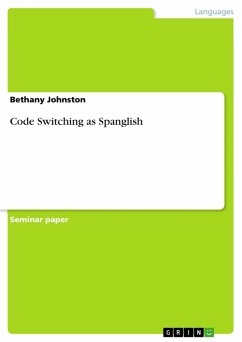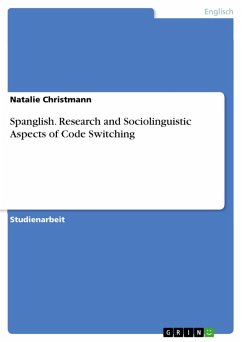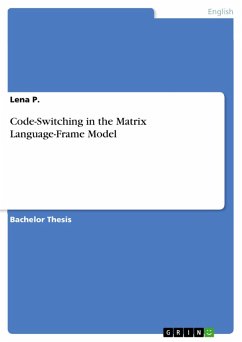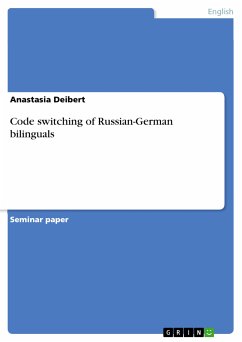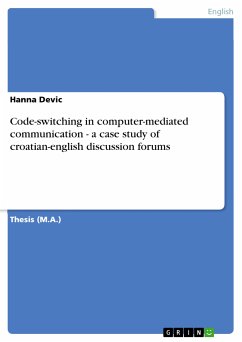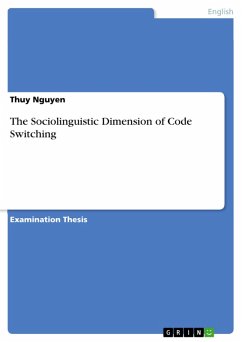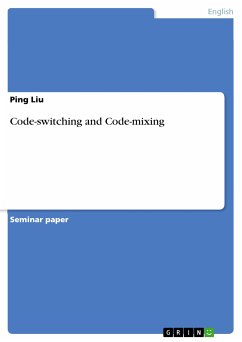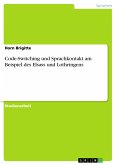Seminar paper from the year 2010 in the subject Romance Studies - Spanish Studies, grade: 1,7, University of Leipzig (Institut für Romanistik), language: English, abstract: "No creo ni en el latín ni en el bilingüismo. El latín es una lengua muerta. El bilingüismo, dos lenguas muertas." (cf. Lipski 2008:41) Such was the opinion of Salvador Tió, the Puerto Rican journalist who is originally said to have coined the term Spanglish; a term, which since its inception, has been used to describe a multitude of linguistic phenomena, for the most part carrying with it a somewhat negative association. Nowadays, however, it has become synonymous with the much studied linguistic phenomenon known as code switching. Ironically, it is precisely this style of bilingual communication in the case of Spanish and English that Tió found so undesirable, and which today, seems to have evolved into a positive means of expressing one's own identity within a number of Spanish-English bilingual communities. I will discuss that particular topic in greater detail in chapter 3 of the paper. Firstly, it is necessary to define what is meant by code switching, and how that differs in comparison to other linguistic phenomena such as lexical borrowing, loan translations or loan words. Secondly, it is my aim to concentrate on what I, and many others, consider to be the three most prevalent grammatical and lexical theories pertaining to code switching at present; The Free Morpheme Constraint, The Equivalence Constraint and The Matrix Language Frame Model. There are many theories in existence and as Cantone (2007:53) mentions in her study of code switching in bilingual children; it continues to be a contentious subject among linguists: Most of the proposed constraints have been widely debated in the last 25 years, ending up in ruling out almost all proposals. It is nonetheless important to introduce them, since they are crucial for the discussion of the empirical data, and also because they show how code-switching can be analysed from a grammatical perspective. Finally, I wish to specifically address the term Spanglish, its different varieties and what can be incorporated under this definition nowadays. In summary of this chapter I will illustrate the use of Spanglish, that is to say Spanish-English code switching, by way of a current example: the bilingual population of Gibraltar.
Dieser Download kann aus rechtlichen Gründen nur mit Rechnungsadresse in A, B, BG, CY, CZ, D, DK, EW, E, FIN, F, GR, HR, H, IRL, I, LT, L, LR, M, NL, PL, P, R, S, SLO, SK ausgeliefert werden.

